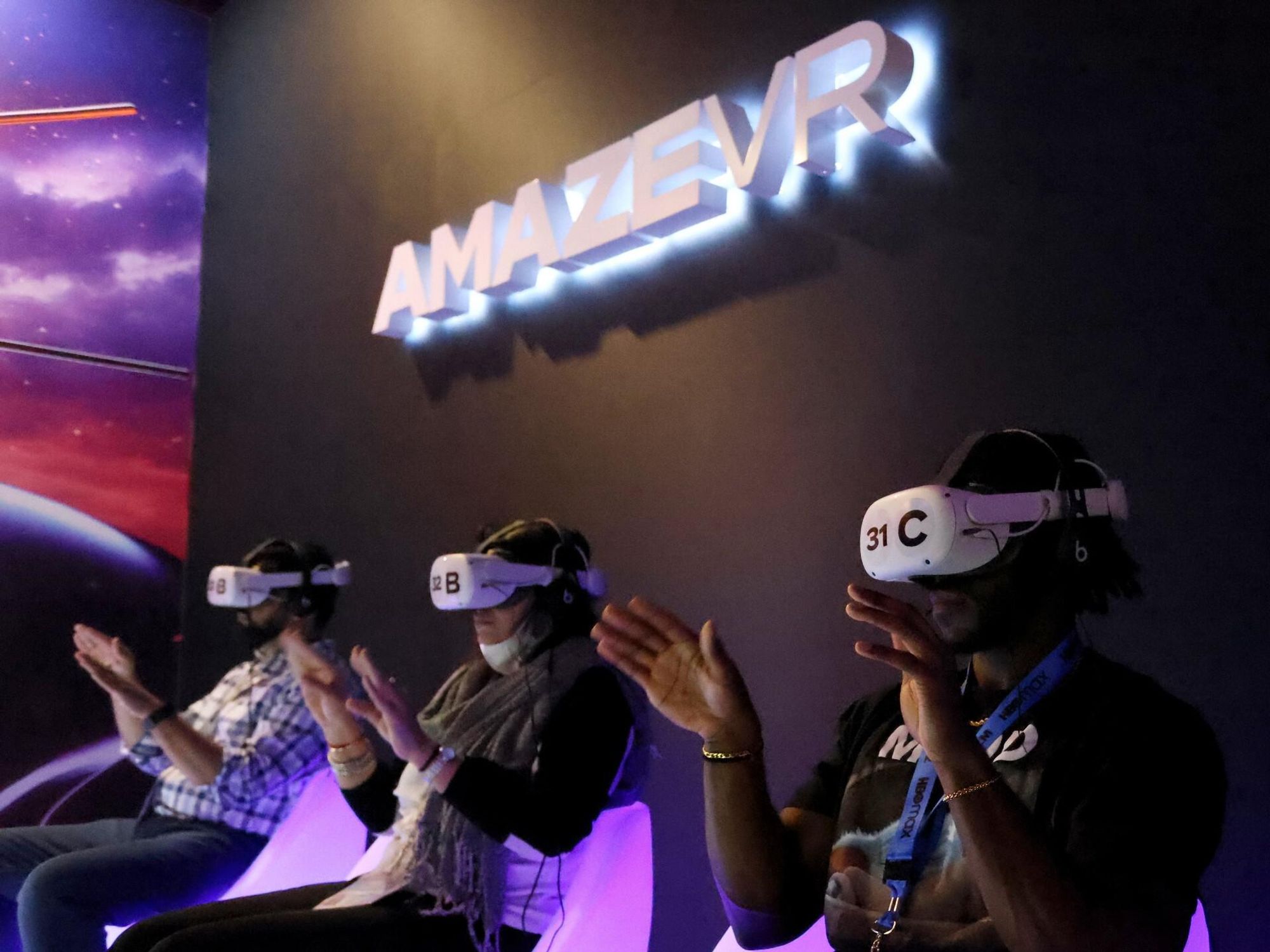AmazeVR Goes Global As VR Concerts Enter New Phase
Christian Hetrick is dot.LA's Entertainment Tech Reporter. He was formerly a business reporter for the Philadelphia Inquirer and reported on New Jersey politics for the Observer and the Press of Atlantic City.

Virtual concerts took off in 2020 when the coronavirus forced musicians to cancel or postpone in-person shows. The looming question is whether the tech startups that raised a ton of cash during the pandemic can keep the momentum going as concerts in the real world return.
It may be a while before that question can be definitively answered. But a new deal struck by West Hollywood-based AmazeVR signals that the music industry is still very interested in virtual shows, especially those that take place in the much-hyped metaverse.
AmazeVR has teamed up with K-Pop juggernaut SM Entertainment to produce VR concerts for the South Korean label’s roster of artists. The Seoul-based joint venture, called Studio A, allows AmazeVR to expand its concert production globally by sourcing from some of the most popular Asian music stars. The deal also broadens AmazeVR’s content delivery, as concerts will be distributed exclusively through its music metaverse service along with SM’s VR service.
Founded in 2015, AmazeVR has been on a tear lately, raising $15 million in January and recently completing a VR concert tour with Megan Thee Stallion. Interestingly, those shows brought fans together in 10 U.S. cities much like a traditional tour. Instead of having people tune in from home, fans gathered in movie theaters, strapped on VR headsets and watched the rapper perform a pre-recorded set.
That approach was partly aimed at introducing VR to fans who may not own a several-hundred-dollar headset, AmazeVR co-CEO Ernest Lee previously told dot.LA. In March, Lee said the 40-person company was bullish on the future of at-home virtual concerts, believing they’ll become a meaningful revenue stream for artists.
Others in the industry are less certain. Although the technology behind virtual shows has improved, there are still limitations that prevent them from feeling truly immersive. Artists, for example, can’t feed off a crowd. While fans flocked to see stars like Justin Bieber and Ariana Grande in virtual shows, it remains to be seen whether musicians with smaller fan bases can capitalize. Live performance startup Encore, based in Culver City, recently launched a new studio iPhone app with mid-tier artists in mind.
It’s important to note there’s a wide rage of “virtual shows” these days, from live-streams on laptops to online 3D worlds that turn artists into cartoonish characters. AmazeVR’s concerts are of the high-production VR variety. The firm pre-records 3D, live-action videos of artists like Megan and inserts them in computer-generated worlds post-production.
Meanwhile, real life shows are rebounding. Beverly Hills-based Live Nation reported that its first-quarter revenues skyrocketed from $290.6 million in 2021 to $1.8 billion this year. But SM’s deal with AmazeVR marks a meaningful endorsement of VR shows as in-person concerts return.
Launched in 1995, SM is one of South Korea’s largest entertainment companies and helped popularize the now global phenomenon of K-Pop. Its roster of artists and groups include Girls' Generation, Red Velvet, Exo and Aespa—a new pop girl group that just reached a partnership deal with Warner Records and played their first U.S. live show at Coachella this year.
“We’ve had a great interest in this market and see the opportunity for our artists in the metaverse,” Lee said in a statement. “AmazeVR shares the same vision for this next generation of music.”
Christian Hetrick is dot.LA's Entertainment Tech Reporter. He was formerly a business reporter for the Philadelphia Inquirer and reported on New Jersey politics for the Observer and the Press of Atlantic City.





 Image Source: Skyryse
Image Source: Skyryse